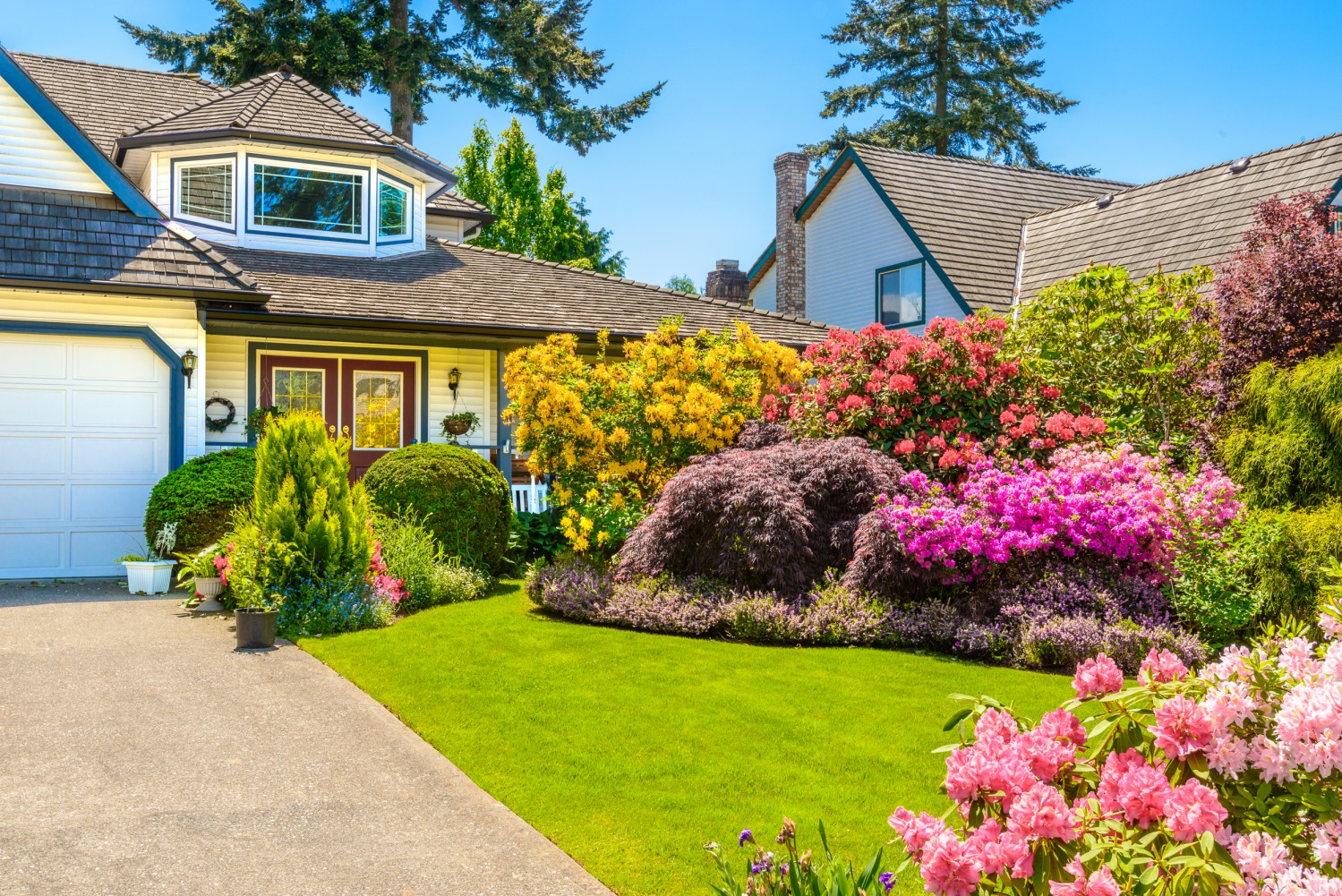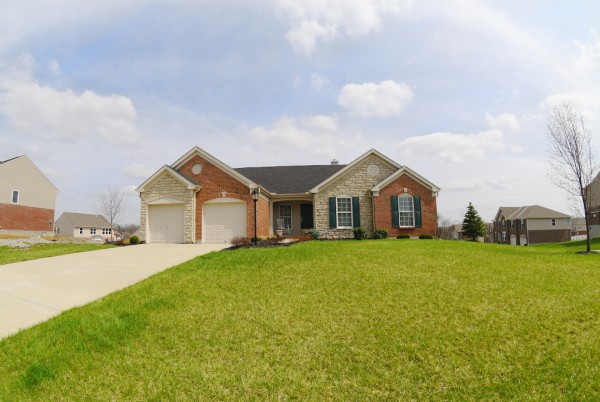Want Butterflies?

Have you ever watched a butterfly emerge from a cocoon and spread its wings for the very first time? Have you watched a hummingbird flap its wings so rapidly while drinking nectar from a flower that it floats in place? Did you know that the plants you choose to put in your yard have a huge impact on the animals and insects you will get to see?
Plant diversity in your landscape is your best friend if your goal is to attract wildlife. The more plant diversity you have, the more butterfly and bird diversity you will have because you are providing a variety of food and habitat choices. Take a look at these photos above. Which family do you think will get to sit outside and enjoy seeing wildlife around them?
As a landscaper, many times I hear, “I want my yard to be low maintenance,” but those same homeowners have primarily all lawn on their property. At first you might think that’s a low-maintenance solution, but let’s dive a little deeper. Grass has to be mowed every single week for about 30 weeks a year in New Jersey, which is very high maintenance! A garden has to be pruned about twice a year. Grass needs to be fertilized and treated for weeds multiple times a season to keep it healthy, green and pristine. A well-designed and mature garden bed needs very little weeding and fertilization.
 A lawn provides us with the color green and then a brownish-yellow when it’s dormant. A garden can be exploding with greens, purples, blues, pinks, yellows and more as well as provide structural interest throughout all of the seasons. Vast expanses of lawn have become a norm amongst homeowners in New Jersey; what happened to the Garden State? I challenge you as a homeowner to rethink your landscape. Where can you remove some lawn and replace it with beautiful gardens?
A lawn provides us with the color green and then a brownish-yellow when it’s dormant. A garden can be exploding with greens, purples, blues, pinks, yellows and more as well as provide structural interest throughout all of the seasons. Vast expanses of lawn have become a norm amongst homeowners in New Jersey; what happened to the Garden State? I challenge you as a homeowner to rethink your landscape. Where can you remove some lawn and replace it with beautiful gardens?
Many birds eat insects, seeds or berries. In order to attract birds to your yard, you need to provide them with an attractive food source and an added bonus—a home to nest. The same goes for butterflies—you not only want to provide them with a nectar source once they have transformed into butterflies, but you also should provide a food source for the caterpillars. Not all plants are created equal for providing food for our N.J. wildlife. Ideally, you want to choose plants that are native to the United States, not exotic plants from Europe and Asia. Native plants are familiar to our wildlife, so they recognize it as food.
A variety of native plants is the key to wildlife success:
BUTTERFLY HOST PLANTS
Milkweed • Asters • Viburnums
Spicebush (Lindera benzoin)
Purple top grass (Tridens flavens)
American Hackberry (Celtis occidentalis)
BUTTERFLY NECTAR PLANTS
Blazing stars (Liatris spp.) • Sunflowers (Helianthus spp.)
Coneflowers (Rudbeckia spp.)
Buttonbush (Cephalanthus occidentalis)
Hyssops (Agastache spp.)
Phloxes (Phlox spp.) • Tickseeds (Coreopsis spp.)
BIRD ATTRACTING PLANTS
New Jersey Tea (Ceanothus americanus)
Chokecherry (Prunus virginiana)
Holly-leaved Barberry (Mahonia aquifolium)
Cardinal Flower (Lobelia cardinalis)
Plant choices can have your yard booming with birds and butterflies or it can lead to a sterile-like landscape. Every homeowner has the power to provide an oasis for wildlife that brings so much joy, childlike fascination and entertainment in return.
If you want help designing and executing your wildlife garden, please give us a call!
Chelsea Feast is in charge of Sales & Marketing for Elite Landscaping - “GO GREEN” division. Email her at CFeast@EliteLandscaping.com or call (856) 753-1944. Visit EliteLandscaping.com for more information.
Published (and copyrighted) in House & Home, Volume 19, Issue 9 (March 2019).
For more info on House & Home magazine, click here.
To subscribe to House & Home magazine, click here.
To advertise in House & Home magazine, call 610-272-3120.
